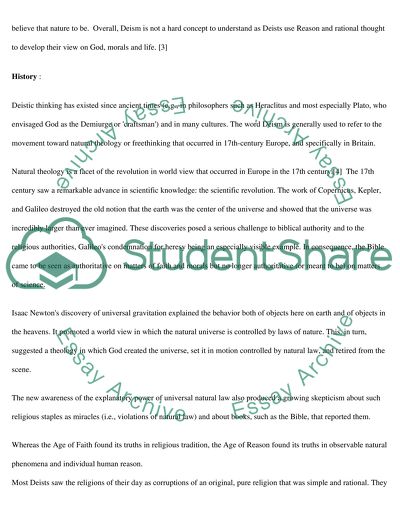Cite this document
(“Deism as a Worldview Essay Example | Topics and Well Written Essays - 2750 words”, n.d.)
Deism as a Worldview Essay Example | Topics and Well Written Essays - 2750 words. Retrieved from https://studentshare.org/religion-and-theology/1505704-deism-as-a-worldview
Deism as a Worldview Essay Example | Topics and Well Written Essays - 2750 words. Retrieved from https://studentshare.org/religion-and-theology/1505704-deism-as-a-worldview
(Deism As a Worldview Essay Example | Topics and Well Written Essays - 2750 Words)
Deism As a Worldview Essay Example | Topics and Well Written Essays - 2750 Words. https://studentshare.org/religion-and-theology/1505704-deism-as-a-worldview.
Deism As a Worldview Essay Example | Topics and Well Written Essays - 2750 Words. https://studentshare.org/religion-and-theology/1505704-deism-as-a-worldview.
“Deism As a Worldview Essay Example | Topics and Well Written Essays - 2750 Words”, n.d. https://studentshare.org/religion-and-theology/1505704-deism-as-a-worldview.


